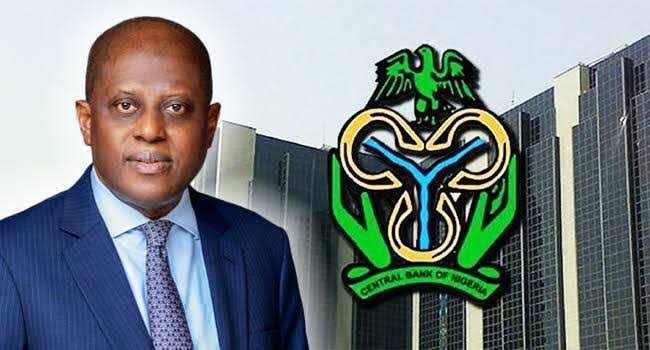In a bid to curb speculation and strengthen the naira, the Central Bank of Nigeria (CBN) has decided to slash the effective retail market rate for end-users. This decision was announced in a circular released yesterday, which also outlined a new round of forex sales to Bureau De Change (BDC) operators.
As per the circular, BDCs will be able to purchase $10,000 worth of forex from the CBN at a rate of N1, 251 per dollar. This rate is significantly lower than the $20,000 allocation and N1, 301 per dollar rate offered in February.
Furthermore, the CBN has allowed BDCs to sell to eligible end-users at a maximum spread of 1.5 per cent above the purchase price from the CBN. In other words, the BDCs will be allowed to sell forex at a maximum of N1, 275.79 per dollar. This change in the spread is meant to discourage BDCs from hoarding forex and profiteering.
These new measures are part of the CBN’s efforts to address the persistent challenges in the forex market and curb the decline of the naira. In recent months, the naira has experienced significant volatility and depreciation, due to a number of factors including high demand for forex, inflationary pressures, and a lack of foreign reserves. The new measures are also aimed at addressing the current supply-demand imbalance in the forex market.
The Central Bank of Nigeria (CBN) has warned that it will impose sanctions on any Bureau De Change (BDC) found to be violating the terms of the revised forex sales to the retail market.
In a letter to the President of the Association of Bureau De Change Operators of Nigeria (ABCON), Dr. Hassan Mahmud, the CBN’s Director of Trade and Exchange, explained the rationale behind the adjustments. The CBN stated that its goal is to address “continued price distortions at the retail end of the market,” which it believes contributes to a wider gap between the official exchange rate and the black market rate.
To access forex, the CBN outlined specific instructions for the BDCs, including the requirement that all eligible BDCs must make naira payments to designated CBN naira deposit accounts before the close of business on Thursday, March 28th, 2024. BDCs must also submit confirmation of payment along with required documentation for forex disbursement at designated CBN branches in Lagos, Abuja, Awka, and Kano.
The CBN’s revised forex policy for BDCs highlights its ongoing efforts to achieve a stable and market-driven exchange rate in Nigeria. This move follows the initial resumption of forex sales to BDCs in February 2024, which aimed to address challenges in the retail forex market. The naira had appreciated by 12.0 per cent to N1, 431.49 per dollar at the Nigerian Autonomous Foreign Exchange Market (NAFEM). However, it remains to be seen whether these measures will have a significant impact on the stability of the naira in the long term.
According to a recent report from CardinalStone, a leading investment banking firm, recent monetary policy reforms in Nigeria are starting to bear fruit. The report notes that the naira has been recovering and foreign capital inflows have been increasing, thanks to the Central Bank of Nigeria’s (CBN) efforts to restore market confidence and improve communication with investors.
The report attributes these positive developments to the CBN’s restructuring of market frameworks, adoption of a more hawkish monetary policy, and clearance of all legal outstanding foreign exchange (forex) backlogs. It is hoped that these efforts will help to stabilize the naira and attract more foreign investment into the country.
However, the report cautions that there is still a long way to go before the country’s monetary policies are considered “normal” by international standards. It recommends further reforms to improve the efficiency of the foreign exchange market and reduce the need for the CBN to intervene directly.
The report also highlights the need for stronger commitment to maintaining a consistent monetary policy framework in order to ensure long-term stability and promote economic growth. Overall, it paints a cautiously optimistic picture of the impact of recent reforms on Nigeria’s economy.
Recent analyses suggest that investors are starting to take a more positive view of Nigeria’s prospects, thanks to the payment of outstanding foreign exchange (forex) backlogs and improved carry trade opportunities. As of the beginning of the year, foreign portfolio investments (FPIs) and foreign direct investments (FDIs) were estimated to have reached $2.1 billion, which is significantly higher than the $1.6 billion recorded in 2023.
The increased level of inflows is in line with robust trade levels relative to those of other major African countries and is being supported by hawkish monetary policy and the stability of the Naira, as evidenced by the 12-month currency forward rate. Additionally, average daily forex turnover – a measure of liquidity – has risen to $4.3 billion, compared to $2.3 billion last year.
These positive indicators bode well for Nigeria’s economy, but it is important to note that there are still challenges that need to be addressed in order to ensure sustainable growth. In particular, analysts have highlighted the need for reforms to improve the efficiency of the foreign exchange market and reduce the need for central bank intervention.









